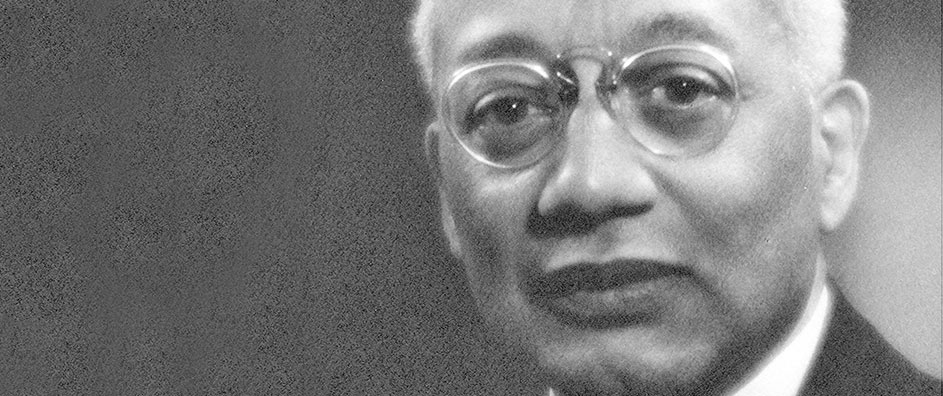Alain Locke, often heralded as the “Father of the Harlem Renaissance,” represents an indelible figure in both American literature and Bahá’í thought. His life and contributions reverberate through various domains, including philosophy, literature, and social justice. The final interment of Alain Locke is not merely an event marking the end of his earthly tenure; it symbolizes the culmination of a legacy steeped in profound teachings that continue to inspire individuals globally. This article seeks to elucidate the remarkable life of Alain Locke and the Bahá’í principles that underpin his philosophical pursuits.
Locke was born on September 13, 1886, in Philadelphia, Pennsylvania, to a well-educated family that fostered his intellectual aspirations. His trajectory took him to Harvard University, where he became the first African American to earn a Ph.D. in philosophy. His academic accomplishments, however, serve only as the prelude to a more significant narrative—one that intertwines the principles of cultural pluralism and the upliftment of humanity, deeply resonating with Bahá’í teachings.
At the heart of Bahá’í philosophy lies the principle of unity in diversity—a tenet that Locke seamlessly integrated into his worldview. He championed the idea that the convergence of diverse cultures creates a richer, more vibrant society. In his seminal work, “The New Negro,” Locke challenged the prevailing stereotypes and limitations imposed upon African Americans, advocating instead for a celebration of cultural heritage. Through this lens, he heralded a renaissance of African American literature and arts, fostering an appreciation for the unique contributions of each individual to the collective narrative.
The final interment of Alain Locke was a poignant moment that reflected the intricate interplay between his scholarly pursuits and spiritual beliefs. The ceremony unfolded not merely as a tribute to a man who had traversed the breadth of human experience but as a testament to the values he espoused—justice, equality, and the relentless quest for truth. Attendees from various backgrounds gathered to pay homage, embodying the very diversity that Locke had so ardently advocated throughout his life.
Locke’s intersectional approach toward race and identity underscores a common observation; society often grapples with the delineation of cultural boundaries, yet Locke implored humanity to transcend these divisions. This deeper inquiry into the fabric of social interaction reveals a persistent yearning for connection—a connection that is foundational to the Bahá’í testament of universal brotherhood. By recognizing the intricate tapestry of human experience, one acknowledges the significance of every thread, regardless of its origins. The interment served as an affirmation of this belief in shared humanity—an acknowledgment that our varied narratives enrich the collective human experience.
The sentiments expressed during the final rites encapsulated the reverence held for Locke among those who strived for social change. As speakers extolled his virtues and contributions, it became evident that Locke’s philosophy was not merely an academic exercise but a call to action—a continued invitation for society to reflect on its principles of equality and justice. His life exemplified the embodiment of Bahá’í teachings that advocate for the dismantling of racial prejudices and the establishment of a more equitable world.
The Bahá’í Faith emphasizes the importance of education, both as a means of personal development and societal advancement. In this context, Locke’s commitment to intellectual pursuits can be viewed as a reflection of the Bahá’í ideal that knowledge is a source of transformation. His writings overflow with the potency of educational empowerment, urging individuals to cultivate their inner capacities while fostering a sense of community among diverse populations. This goes beyond mere scholarship; it implores individuals to take up the mantle of leadership and responsibility within their societies.
The ceremony also aroused contemplations on the legacy that great figures leave behind. While Alain Locke’s physical presence may be interred, the resonance of his thoughts endures within the fabric of contemporary discourse. He imparts a powerful lesson: that the influence of a single individual can ignite change, inspire generations, and transcend the limitations of time and space. In this light, his teachings serve not merely as historical artifacts but rather as living principles for future generations to embrace and practice.
The themes surrounding Locke’s final interment beckon a greater understanding of the human condition. The blend of commemoration and reflection invites attendees to ponder their roles in society. It evokes the essence of shared responsibility, a core teaching within the Bahá’í Faith. Just as Locke challenged his contemporaries to meticulously examine their beliefs and aspirations, we, too, are encouraged to reflect on our contributions to a more just and unified world.
As we contemplate the legacy of Alain Locke, it is imperative to appreciate the depth of his character, the breadth of his intellect, and the passion for justice that defined his life. His interment transcended the mere act of saying goodbye; it was a reaffirmation of the principles by which he lived. The Bahá’í teachings resonate profoundly within this legacy, reminding us that the pursuit of truth, justice, and unity is not merely a private endeavor but a collective journey to which all humanity is called.
In the context of Alain Locke’s life and the insights gained from his final interment, we are left with a challenge—a call to action to realize the potential that lies within ourselves and our societies. To honor Alain Locke is to embody the ideals he championed, fostering an environment where the richness of diversity is celebrated and every individual is empowered to contribute to the overarching narrative of humanity.
